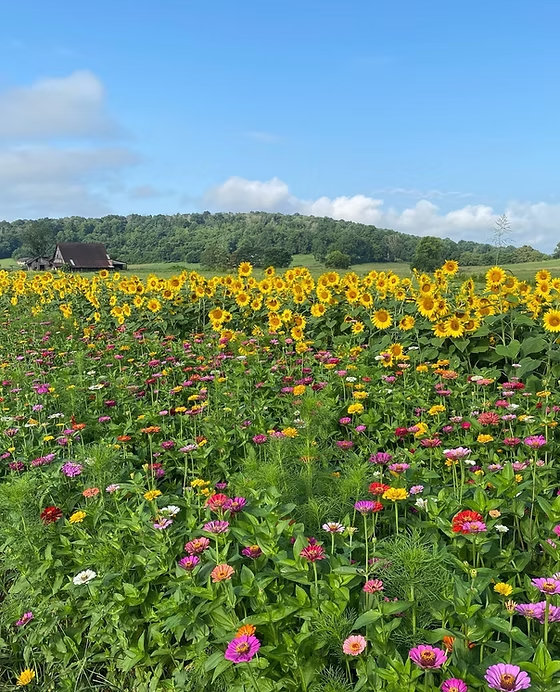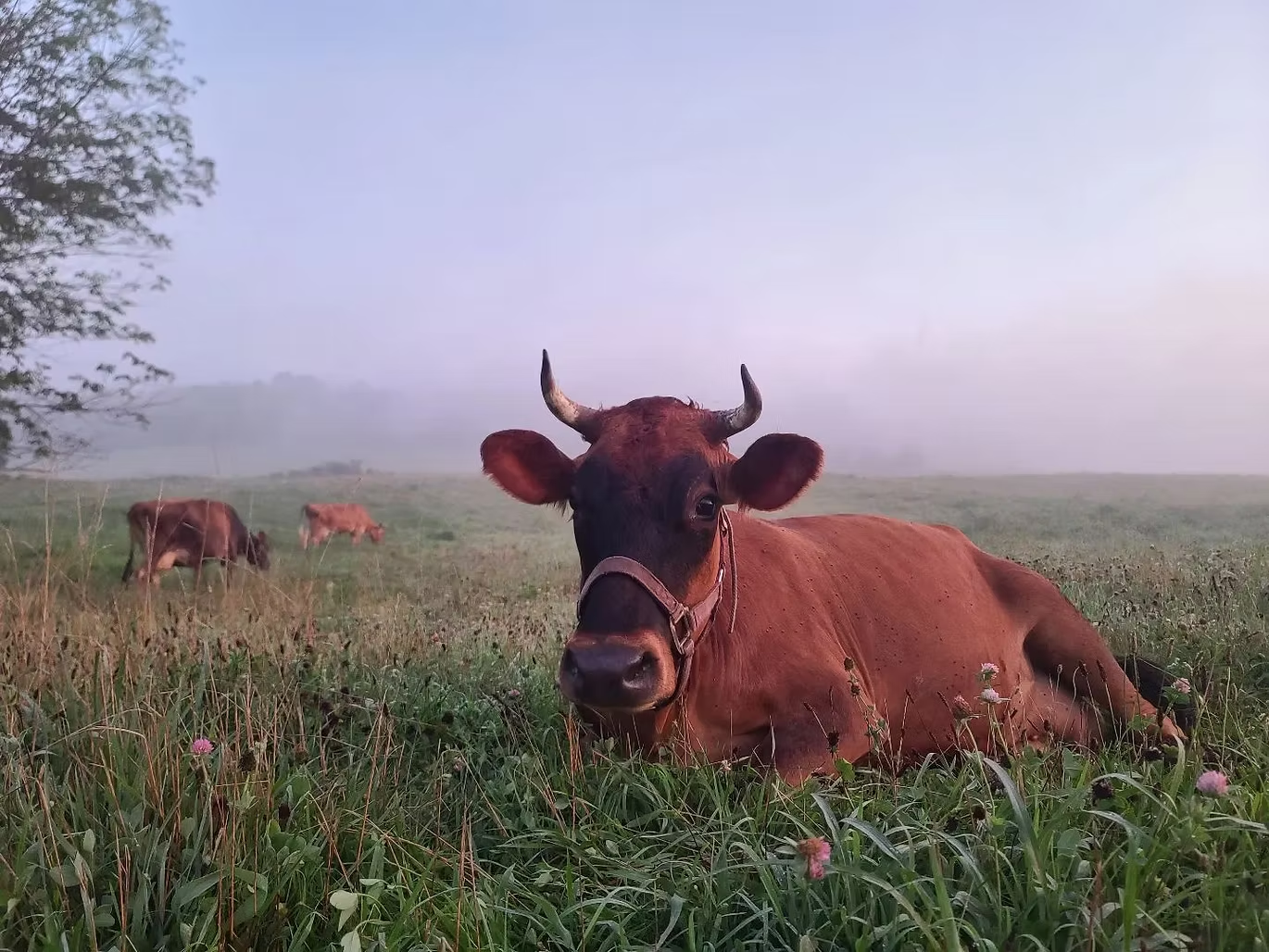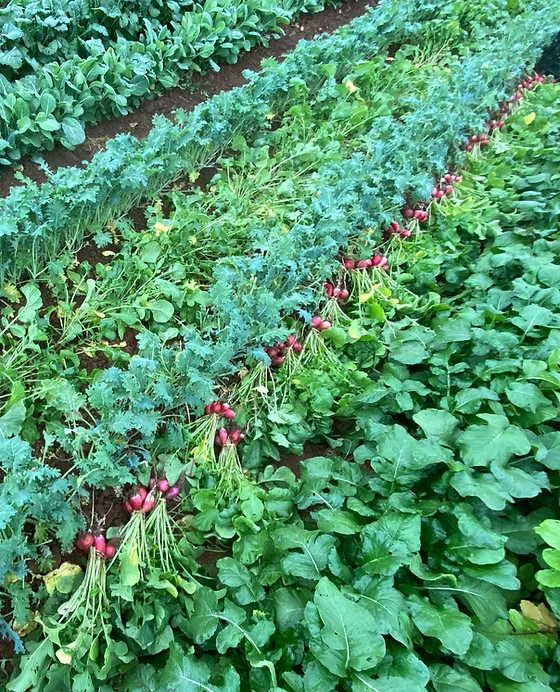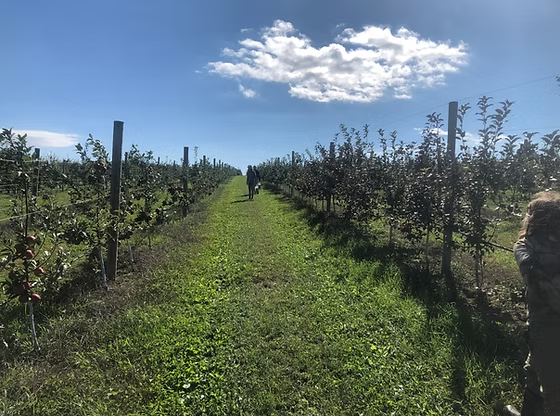Definitions
Definitions relating to the work of The Farmers Land Trust
1Agroecology
Sustainable farming that works with nature. Ecology is the study of relationships between plants, animals, people, and their environment - and the balance between these relationships. Agroecology is the application of ecological concepts and principals in farming.
2Biodynamic Agriculture
A holistic, ecological, and ethical approach to farming, gardening, food, and nutrition. Biodynamics is rooted in the work of philosopher and scientist Dr. Rudolf Steiner, whose 1924 lectures to farmers opened a new way to integrate scientific understanding with a recognition of spirit in nature.
3Commons
Land or resources belonging to or affecting the whole community.
4Conservation Easement
A legal agreement between a landowner and a land trust or government agency that permanently limits certain uses of the land in order to protect its conservation values. Landowners retain many of their rights, including the right to own and use the land, sell it and pass it on to their heirs.
5Community Supported Agriculture (CSA)
The consumer pays the farmer a fee in advance of the growing season and in return the farmer provides the consumer a variety of fresh produce every week during the growing season.
6Donation
The act of voluntarily giving money, goods, services, or other assets, such as real estate, to a non profit organization without expecting anything tangible in return and for the intention to support the mission, programs, and activities of the nonprofit organization. Donations are a critical source of funding for nonprofits and are often used to cover operating expenses, fund specific projects or initiatives, or support the organization's overall mission and goals. Donors who make donations to nonprofits may be individuals, corporations, foundations, or other organizations, and they may receive tax benefits for their contributions depending on the tax laws in their jurisdiction.
7Equity
Can mean the amount of money after debt that is able to be taken out or borrowed from the property. Can also mean needing to have fairness and justness in use, ownership, and tenure.
8Ground Lease
An agreement that allows for the leaseholder who is renting the land to maintain ownership of and build equity through infrastructure that resides on the land being leased.
9Holistic Grazing Management
An approach to managing livestock and resources that was originally developed by Allan Savory. Holistic Management uses a decision-making process to help ensure that the actions taken to restore land and livelihoods are ecologically, socially and economically sound based on the context described by the people involved.
10Land Access
Land is owned by one person or entity, and another person or entity is granted use to that land for an undefined amount of time.
11Land Decommodification
Removing land from the speculative market so that it can no longer be bought and sold for profit.
12Land Justice
The practice of centering ecological, social, and racial justice in decisions about how land is used, loved, and governed by people.
13Land Legacy
Land given as a gift to the future to meet the shared values and principles we all have around ecological stewardship.
14Land Rematriation
The return of Indigenous land to Indigenous people. The term, more commonly known as “land back,” acknowledges how colonization contributed to the theft and plunder of Indigenous land and communities—and has grown into an effort to help reclaim stolen lands.
15Land Reparations
Remuneration in the form of land to Black people. The term acknowledges how slavery, broken promises, and long-standing and existing systematic and institutional racism both historical and current, is the cause of the theft of land and the unproportionate land holdings between white and Black people we see today.
16Land Security
Land is owned by one person or entity, and another person or entity is granted use to that land through legal documentation, giving the non-landowner right to the use of that land for a short, defined amount of time, usually 1-5 years.
17Land Tenure
Land is owned by one person or entity, and another person or entity is granted use to that land through legal documentation, giving the non-landowner full right and control to the use of that land for long-term, usually 15-99 years.
18Land Transition
When ownership of land is transferred from one person or entity to another.
19Land Trust
A community-based, nonprofit organization that actively works to permanently conserve land. In some cases, land trusts acquire land outright. In other cases, they partner to conserve land that remains the property of willing landowners. Land trusts can be local, state or regional in scope, working directly with private landowners and community partners to protect land that has natural, recreational, scenic, historical, housing, or agricultural values.
20Lease
A contract outlining the terms under which one party agrees to rent land and/or real estate owned by another party.
21Nonprofit
Organizations that do not operate for the purpose of making a profit for their owners. Instead, they exist to provide a benefit to the public, its members or its beneficiaries. There are five categories of nonprofits, including charitable, religious and church, private foundations and political organizations. Some types of nonprofits fall under miscellaneous, such as Federal Credit Unions. Within these categories, there are dozens of 501 tax-exempt statuses.
22Organic
A labeling term that indicates that the food or other agricultural product has been produced according to the USDA organic standards.
23Private Property
Ownership of land and buildings and other infrastructure by another individual. Private property can be broken up into rights owned privately by one individual, or separately by many.
24Real Estate
Land and any structures or improvements attached to the land, such as buildings, houses, infrastructure, and above, on, and below ground improvements. Natural resources like minerals and water are also real estate that may be owned together or separately from land depending on location and state and federal laws. Real estate encompasses both the physical attributes noted and the rights associated with owning, using, and transferring the property by deed. Farmland is a specific land type based on soils.
25Regenerative Agriculture
Describes farming and grazing practices that, among other benefits, reverse climate change by rebuilding soil organic matter and restoring degraded soil biodiversity – resulting in both carbon drawdown and improving the water cycle.
26Rights of Nature
Rights of Nature is the idea that ecosystems have the right to exist, thrive, and evolve—and that nature should be able to defend its rights in court, just like people can. Rights of Nature (RoN) is a legal instrument that enables nature, wholly or partly, i.e. ecosystems or species, to have inherent rights built into legal documents.
27Tree Farm Forest Management
The American Tree Farm System (ATFS) is internationally recognized by the Programme for the Endorsement of Forest Certification (PEFC), the world’s largest forest-certification system. Certified landowners who follow the PEFC and Tree Farm Standards are recognized around the world as ambassadors for voluntary sustainable forest stewardship.
Standards include:
- Commitment to Practicing Sustainable Forestry
- Compliance with Laws
- Reforestation and Afforestation
- Air, Water, and Soil Protection
- Fish, Wildlife, Biodiversity, and Forest Health
- Forest Aesthetics
- Protect Special Sites
- Forest Product Harvests and Other Activities
28Tripartite Board
Used by community land trusts, they consist of resident, leaseholder representatives (the people who live on the land owned by the community land trust), public representatives (people who are part of the community but not residents of the land owned by the trust), and public representatives (people who are local elected officials, nonprofit leaders, or others who are trusted to speak for the public interest).










